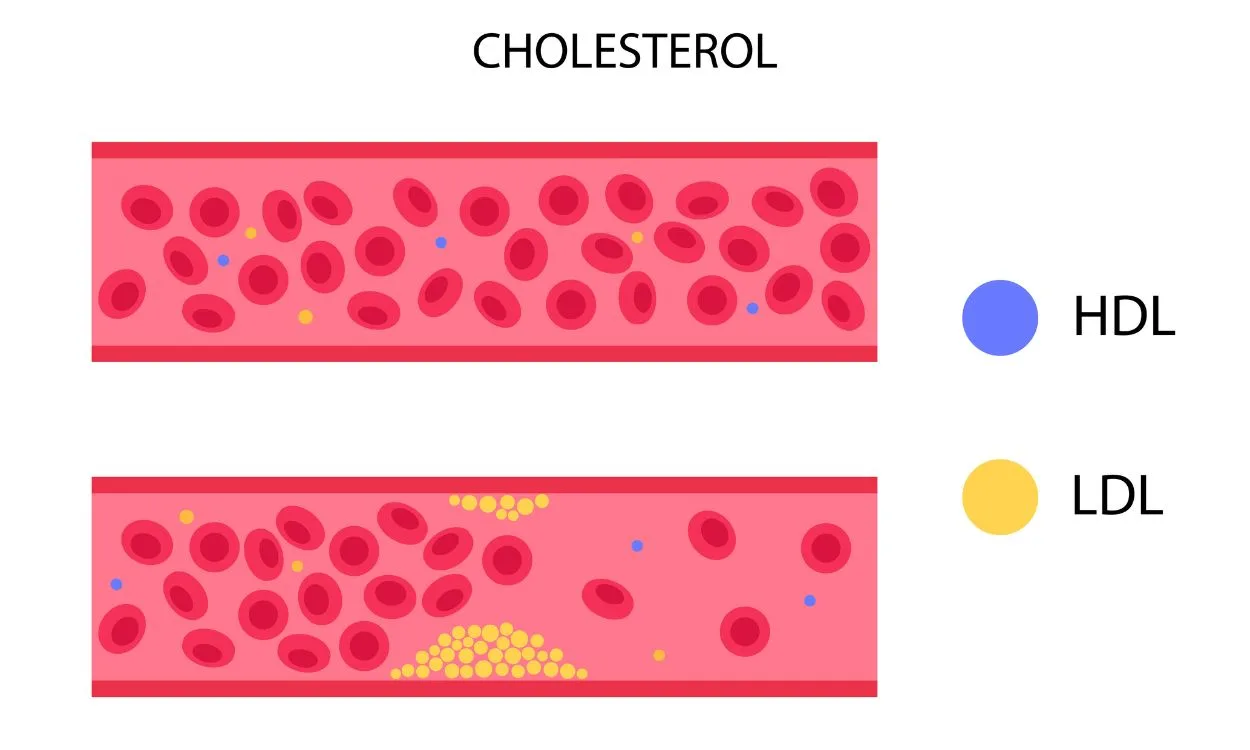What are LDL and HDL Cholesterol, and Their Differences?
Introduction
In today’s world, where lifestyle diseases are on the rise, cholesterol has become a buzzword. You might have heard of LDL and HDL cholesterol, but what exactly are they and how do they differ? In this article, we will explore the world of cholesterol, understanding what LDL and HDL cholesterol levels mean, and how they affect your health. So, let’s dive in!
Understanding Cholesterol
Cholesterol is a waxy substance that is found in your blood. It is produced naturally by your liver and is also present in certain foods. Cholesterol is essential for the proper functioning of your body as it helps in the production of hormones, vitamin D, and substances that aid in digestion.
LDL Cholesterol – The “Bad” Cholesterol
LDL (Low-Density Lipoprotein) cholesterol is often referred to as the “bad” cholesterol. This is because high levels of LDL cholesterol can lead to the buildup of plaque in your arteries, a condition known as atherosclerosis. Over time, this plaque can narrow your arteries, reducing blood flow and increasing the risk of heart disease and stroke.
HDL Cholesterol – The “Good” Cholesterol
HDL (High-Density Lipoprotein) cholesterol is known as the “good” cholesterol. It plays a vital role in removing excess cholesterol from your bloodstream and carrying it back to your liver, where it is broken down and eliminated from your body. High levels of HDL cholesterol are associated with a lower risk of heart disease.
The Differences Between LDL and HDL Cholesterol
- Density: The main difference between LDL and HDL cholesterol lies in their density. LDL cholesterol is low in density and has a higher proportion of cholesterol compared to protein. HDL cholesterol, on the other hand, is high in density and has a higher proportion of protein compared to cholesterol.
- Function: LDL cholesterol carries cholesterol from your liver to the cells of your body, including the arteries. HDL cholesterol, on the other hand, picks up excess cholesterol from the arteries and carries it back to the liver for disposal.
- Health Impact: High levels of LDL cholesterol can contribute to the formation of plaque in your arteries, increasing the risk of heart disease and stroke. In contrast, high levels of HDL cholesterol are associated with a lower risk of heart disease.
- Optimal Levels: The optimal levels of LDL cholesterol vary depending on your risk factors for heart disease. In general, it is recommended to keep LDL cholesterol levels below 100 mg/dL for individuals at low risk and below 70 mg/dL for individuals at high risk. HDL cholesterol levels should ideally be above 40 mg/dL for men and above 50 mg/dL for women.
How to Maintain Healthy Cholesterol Levels
- Eat a Healthy Diet: Incorporate foods that are rich in fiber, such as fruits, vegetables, and whole grains. Choose healthy fats, such as those found in avocados, nuts, and olive oil. Limit your intake of saturated and trans fats, found in red meat, fried foods, and processed snacks.
- Engage in Regular Physical Activity: Regular exercise can help increase HDL cholesterol levels and improve overall cardiovascular health.
- Maintain a Healthy Weight: Losing excess weight can help improve your cholesterol profile.
- Quit Smoking: Smoking not only lowers HDL cholesterol levels but also damages your blood vessels, making them more susceptible to plaque buildup.
- Limit Alcohol Consumption: Excessive alcohol consumption can lead to increased levels of triglycerides, another type of fat that can contribute to heart disease.
Introducing Fitpaa – Your Personal Health and Fitness Companion
Now that you have a better understanding of LDL and HDL cholesterol, you may be motivated to take control of your health and make positive changes. Fitpaa is here to support you on your journey to better health and fitness. With the Fitpaa app, you can access personalized fitness plans, nutrition guidance, and real-time monitoring to help you achieve your health and fitness goals.
Fitpaa’s comprehensive approach combines the latest research in lifestyle medicine and behavioral therapy to optimize your metabolism and strengthen all 11 organ systems. The Fitpaa Capsule, tailor-made for your specific needs, includes medical therapy, exercise therapy, nutrition therapy, and cognitive behavior therapy. With Fitpaa, you can achieve your health and fitness goals with a 100 percent guarantee.
The Fitpaa app provides a range of features, including a virtual workout trainer, diet tracker, performance tracking, and progress tracking. With the support of a dedicated team of fitness planners, nutritionists, fitness trainers, and doctors, your progress will be regularly reviewed, and necessary adjustments will be made to ensure you stay on track.
Don’t wait any longer! Experience the joy of getting fit and excel at life by downloading the Fitpaa app today. Your well-being is our mission, and we are here to help you achieve your health and fitness goals with guaranteed results. Take the first step towards a healthier, happier you with Fitpaa!
Conclusion
Understanding LDL and HDL cholesterol is crucial for maintaining good cardiovascular health. While LDL cholesterol is considered “bad” and can contribute to heart disease, HDL cholesterol is known as the “good” cholesterol that helps remove excess cholesterol from your bloodstream. By making positive lifestyle changes and utilizing the support of the Fitpaa app, you can take control of your cholesterol levels and improve your overall health and well-being. So, why wait? Start your journey towards a healthier life today with Fitpaa!









